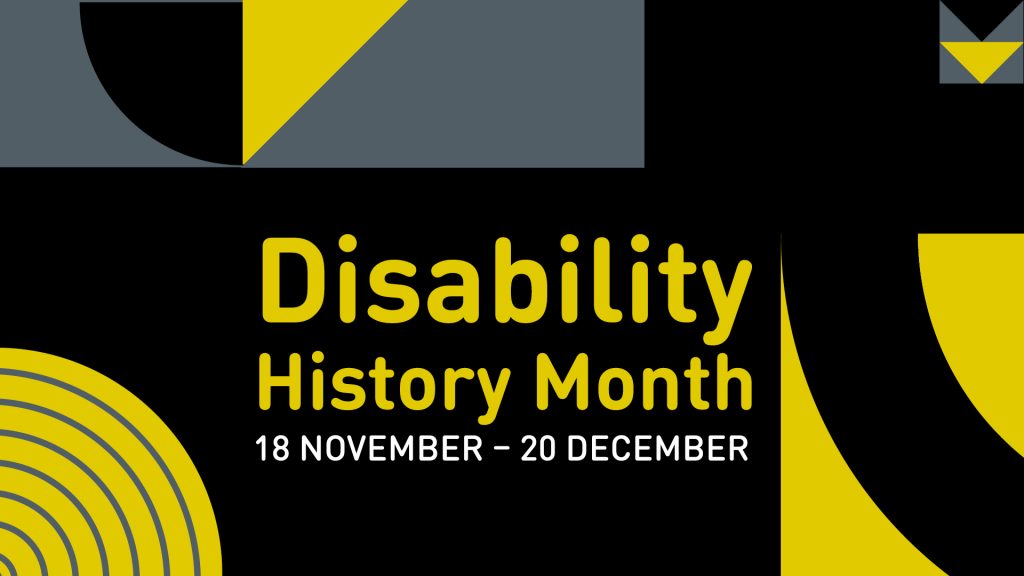Disability History Month: Support for students

This year’s UK Disability History Month (18 November-20 December) is focusing on Access: How far we have come? How far have we to go?
Throughout the month Loughborough University and Loughborough Students’ Union are highlighting the services and support available to staff and students, as well as running a number of events which recognise the month and hope to raise awareness.
In this blog Helen Shaw, Disability Access and Learning Manager within the Student Wellbeing and Inclusivity (SWAI) team, discusses the support available to students.
SWAI provide information, advice, guidance and support to students living with a range of long term physical and mental health conditions, alongside those with neurodiverse conditions such as dyslexia.
The service is open to any student who experiences a disability within the definition of the Equality Act (2010) i.e. you have, or expect to have, been impacted for at least 12 months by a physical or mental health condition that impacts on your life as a student at University with us.
There are approximately 3,000 disabled students currently registered with the service. To give you an idea of the types of conditions we support students with, here is a brief snapshot:
- Crohn’s disease
- Anxiety
- AD(H)D
- Chronic Fatigue Syndrome (ME)
- Anorexia
- Asperger’s Syndrome
- Hearing loss
- Cerebral palsy
- Diabetes
- Chronic back pain
- Dyslexia
- Visual impairment
All support is arranged from a holistic perspective and tailored to the individual needs. Some examples of support available to students include:
- Stop-the-clock rest breaks in timed assessments to allow, for example, bathroom breaks, scheduled medication or physical stretching
- Extended library loans to allow students a longer period to study from written material
- A mini fridge in on-campus accommodation to keep refrigerated medication
- An exam room with fewer students in
- Car parking permits
- Note-taking software
If you are unsure about what support might be available to you, or whether you are eligible, please do not hesitate to contact us so an Advisor can explore the situation further with you. Some students can worry about coming forward for support.
To help allay some of these concerns, I can reassure you that all information related to your disability remains confidential within SWAI and is not shared with your academic Department, peers, or future employers. You can read more about this on our website here.
SWAI is committed to the social model of disability; reducing disabling factors in society rather than considering the individual medical condition. As the manager of the Disability Access and Learning teams, I am passionate about working towards removing attitudinal, procedural, structural and physical barriers within a disabled student’s journey at University and I work closely with colleagues across campus to achieve this.
The Disability Support Team is delighted to be involved in recognising the importance of Disability History Month in 2020. Understanding of, and support for, disabled people in the UK has changed significantly in the last 25 years since discrimination due to disability was made illegal.
I am proud of the journey the University has taken to support disabled students over the last 25 years, and I welcome contact, feedback and involvement from disabled students to help influence our work moving forwards.
More information on what the University is doing for Disability History Month can be found on the dedicated webpage.
Health and Wellbeing
Wellbeing means being in a positive physical, social and mental state. Wellbeing is important to us as happy, healthy people who achieve harmony in their work / life mix are more creative, productive and help to create a great place to work.